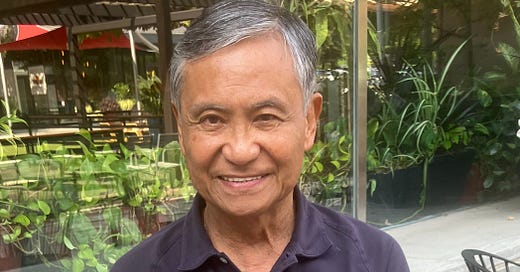THE INSPECTOR OF ABU GHRAIB
When the US Army can't face a painful truth about itself, it kills the messenger
NOTE: Yevgeny Prigozhin, the Russian mercenary leader who died this week in a plane crash outside Moscow, was the subject of previous dispatches here and here.
It could have been a feel-good story—something badly needed in America today—about a bright Army general who did the right thing at a tough time and was duly rewarded. The general is Tony Taguba, a two-star officer who was born in the Philippines and made his way to college in America on a ROTC scholarship and, after graduation, began a 34-year career that brought him, after rapid promotions and high accolades, to the American war in Iraq in 2003.
Taguba was serving in the US military’s headquarters in Kuwait in 2004 when word of an impending scandal—one that was immediately understood to have implications as severe as the My Lai massacre in South Vietnam—stunned the top command. It concerned the Abu Ghraib prison, located twenty miles west of Baghdad. The notorious jail had long been shuttered prior to the US invasion of Iraq and overthrow of Saddam Hussein. It was renovated by the US and now held as many as 50,000 detained men and women. Most of them were believed to be linked to or have knowledge of the Al Qaeda opposition. The prisoners were confined in 12’-by-12’ cells that were, as I reported two decades ago, little more than holes in the ground.
I first learned of the tortures and other abuses that took place at Abu Ghraib late in 2003 while interviewing an ousted senior officer of the Iraqi air force. He took a dangerous seven-hour taxi ride from Baghdad to Damascus, where we met in an out-of-the-way hotel for three days. He wanted a way out of Iraq for his wife and two children, and I passed his name and contact information to various officials in Washington. One evening he brought up Abu Ghraib, about which I knew nothing, and told me that the US military, desperate to learn about the opposition in Iraq, had taken to seizing mothers and their children and jailing them there. The women were sending messages asking family members in Baghdad to come and kill them because they had been sexually abused by their American guards and interrogators.
Sometime around the New Year’s holiday, an unhappy and friendless American military police prison guard came forward to alert his superiors of the abuses taking place at the Abu Ghraib prison. He was a member of a National Guard unit that was trained in traffic control but was reassigned with little or no instruction to serve as prison guards. The guards were teamed with members of an experienced and more senior American military intelligence unit at the prison. Its mission was to break down young male Iraqi prisoners and get them to tell what they were assumed to know about Al Qaeda activities. The young men and women prison guards, perhaps flattered by the attention or perhaps eager to show that they could “get tough” with the prisoners, began abusing and tormenting the prisoners, photographing the abuse, and sharing the photos.
Keep reading with a 7-day free trial
Subscribe to Seymour Hersh to keep reading this post and get 7 days of free access to the full post archives.




